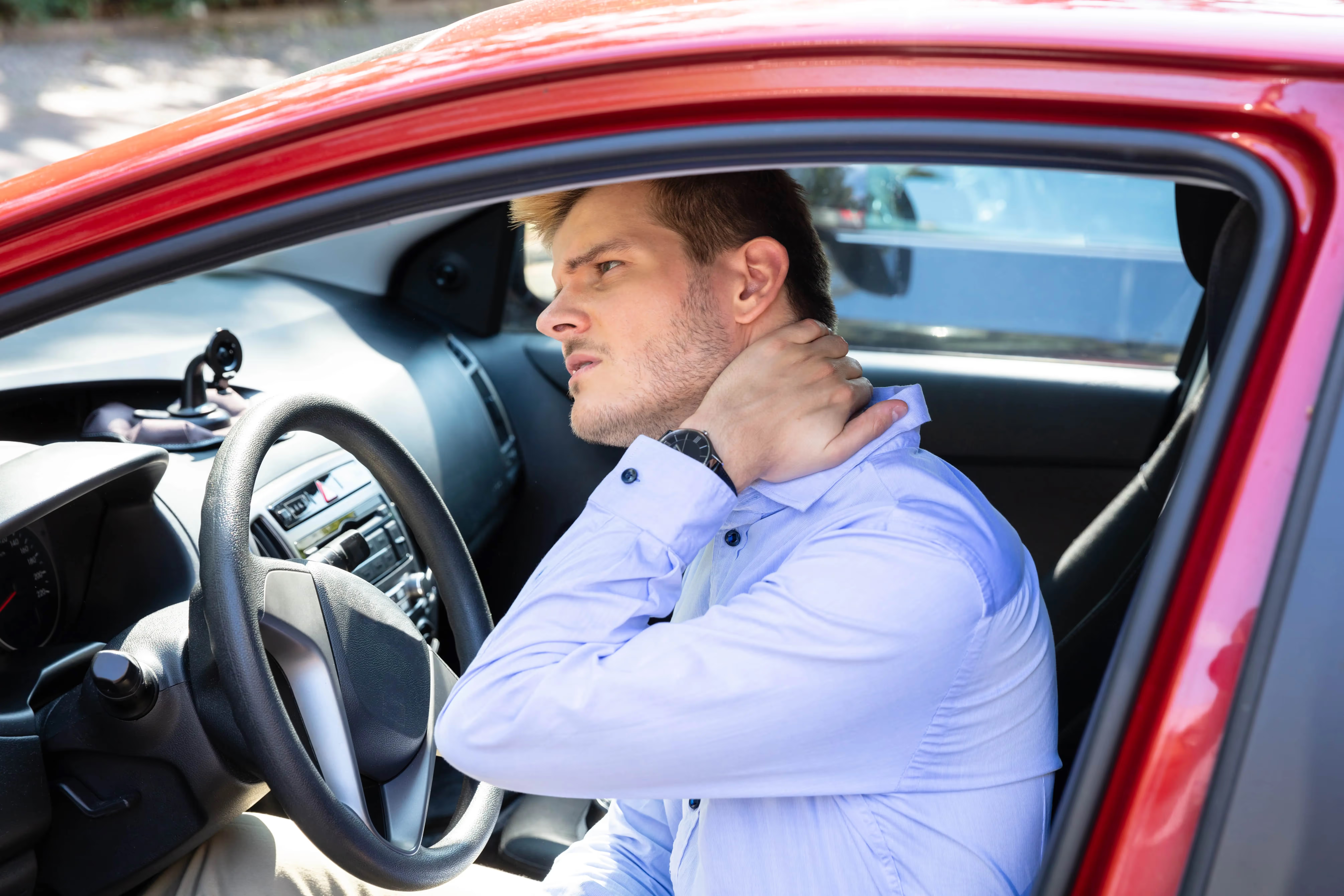Hampton, VA Rear-End Accident Lawyers
Click on the link below to connect with our legal team for a free consultation, we’ll respond within 1 hour during business hours. Or call us 24/7 at (757) 244-7000.












Many fender benders are an inconvenience when you have to get your car repaired. But you can’t shrug off all rear-end accidents. Rear-end crashes can be devastating and may cause serious harm.
When you or a loved one have been severely hurt, reach out for help. The Smith Law Center is here to answer all your questions. We’ve fought for injury victims since 1949 and have won more than a billion dollars in settlements and court verdicts. Call (757) 244-7000 or fill out our online form.
What Causes Most Rear-End Accidents in Virginia?
Many behaviors can lead to read-end crashes. We often find speeding, tailgating, or distracted driving is involved. According to the Virginia DMV, over 13% of crashes involved following too closely in 2019.
Here are some common scenarios:
- Driver A slams on their breaks, and behind them, Driver B doesn’t have enough time and distance to stop.
- Driver A’s brake lights are out, and Driver B doesn’t notice they’re slowing down.
- Driver B doesn’t see Driver A has their turn signal on and is slowing down.
- Driver A doesn’t use their turn signal, and Driver B doesn’t realize they’re slowing down to turn.
- Driver B speeds up to change lanes without realizing that Driver A has applied their breaks.
- Driver B assumes Driver A in front of them will move when a light turns green and accelerates into the vehicle.
- Driver B reverses in a lane of traffic.
No matter what you’ve experienced, our attorneys have probably seen it before. But we won’t jump to conclusions. We’ll thoroughly investigate the cause of the car accident, and we’ll gather evidence, like the police report, photos, and eyewitness statements, to determine what happened, why, and who is liable.
Who Is at Fault After a Rear-End Car Accident?
The person at fault for a rear-end accident is the one who either violated a traffic law or wasn’t careful under the circumstances. Every driver is responsible for obeying the law and acting reasonably. When someone doesn’t do that and causes a crash, they are negligent.
Sometimes fault in a rear-end crash is obvious. Other times, it’s complicated. It’s a good idea to have an experienced car accident lawyer investigate the collision and uncover what happened. You’ll need proof to win a settlement or court award.
A lawyer will also identify who is liable for compensating you. The party responsible for your injuries might not be the at-fault driver. The most common example is when the careless driver was working at the time. Depending on the circumstances, you’d likely demand compensation from their employer.
What Types of Injuries Can Result from a Rear-End Accident?
The consequences of a rear-end crash can vary wildly from one situation to the next.
Rear-end accident injuries can include:
- Whiplash and other neck injuries;
- Back injuries, like herniated discs;
- Spinal cord injuries, nerve damage, and paralysis;
- Concussions or more serious traumatic brain injuries (TBIs);
- Broken bones, including skull fractures;
- Facial injuries and scarring;
- Crushed limbs and amputations; and
- Post-traumatic stress disorder (PTSD) or other mental health conditions.
Many people underestimate the risk of a head or brain injury in a rear-end accident until it happens to them or a family member. When you’re dealing with a TBI, you want the best lawyer on your side. Stephen M. Smith has over 47 years of experience and is internationally recognized for his work with TBIs.
What Damages Are Available In a Rear-End Accident Lawsuit?
When someone else’s careless or reckless conduct caused your injuries, you can demand compensation. A financial recovery may often be the best way to pay for your bills and make up for your experience.
Your compensation may cover past and future costs associated with:
- Medical expenses
- Lost wages
- Property damage
- Emotional distress
- Physical pain and suffering
- Disfigurement
- Physical limitations
How much you can win through a settlement or court award depends on many factors, including the severity of your injuries and whether you were partly responsible for the crash. It helps to talk with an experienced attorney about what to expect.
Can I Prevent a Rear-End Accident?
While you can reduce the risk of a rear-end crash, you can’t prevent one entirely. You can’t control what other drivers do.
The best way to avoid another driver rear-ending you is to avoid sudden stops. Apply your brakes or turn signals early to give the vehicle behind you plenty of warning. You also need to make sure your brake lights and turn signals work. Don’t put off repairs.
To avoid rear-ending someone else, leave plenty of room between you and the vehicle ahead. Don’t speed, and pay attention to how weather and road conditions affect your brakes. If the roads are wet or icy, start braking earlier than normal.
Avoid distractions. Don’t use a cellphone, drink, or eat while you drive. If you need to pay attention to kids fighting in the back seat, find a convenient place to pull over.
Another point is to avoid vehicles that are swerving or the driver appears intoxicated. Stay behind them or take another route.
What Should I Do After a Rear-End Accident?
We want you to know what to do after a rear-end accident — and what not to do. It’s best to act quickly, and if you have any questions or concerns, give us a call.
Immediately after a car accident, we recommend:
- Exchanging contact and insurance information with the other driver,
- Asking for witness’s contact information,
- Taking photos of the crash, and
- Getting medical care right away.
Don’t argue with the other driver or apologize. A crash scene isn’t the time or place to argue about fault or liability.
We know you might not have been able to take these steps if you were seriously hurt. Don’t worry. We’ll thoroughly investigate the crash and gather evidence on your behalf.
Seeing a doctor is important. If you hope to win compensation, you must document your injuries. Your medical records and bills may become important evidence.
Once you’re safe, notify your insurance company of the crash and call a personal injury lawyer. You can call an attorney for a loved one, too. Don’t wait days or weeks until they’re able to contact us themselves. Any type of delay could affect the outcome of their case.
If an insurance company contacts you after an accident, you don’t have to answer questions or provide a statement. If the other driver’s insurer wants a statement, we recommend telling them you need to consult your attorney first. If the time comes to answer questions, we’ll prepare you.
Reach Out to a Rear-End Accident Lawyer Right Away
The Smith Law Center is the largest personal injury law firm on the peninsula, and one of the largest in Virginia. Since 1949, our firm has fought hard for our clients and become a leading force in representing brain injury victims. Take a look at our results.
Are you ready to get legal help? Reach out to the Smith Law Center through our online form or call (757) 244-7000. Our team has decades of experience handling rear-end accident claims, including those involving serious brain injuries. We have the knowledge, skills, and resources you need to recover fair compensation.





FAQs
Rear-End Accident FAQs
Can I be blamed if another driver rear-ended me?
Yes, the rear vehicle isn’t always at fault. An insurer or court may determine you share in the blame. If you’re worried about this, hire a Virginia car accident lawyer. The state follows a pure contributory negligence rule, which means you can’t recover compensation if you were partly at fault. Smith Law Center will defend you against allegations of contributory negligence to protect your right to a recovery.
What is following too closely?
The Virginia DMV recommends the 3-second rule for speeds between 35 and 45 MPH and 4 seconds for speeds between 46 and 70 MPH. First, glance at the vehicle ahead when it passes a fixed object. Start to count. How many seconds did it take for your vehicle to pass that same object? If it’s fewer than 3 or 4 seconds, you should put more distance between your vehicle and the one ahead of you. Also, add space when the weather, traffic, or road conditions are poor.
How long do I have to file a rear-end accident lawsuit?
In Virginia, you typically have two years from the date of the crash to file a personal injury lawsuit. But you don’t want to wait that long to get started. If you want to recover compensation as soon as possible, you should call our rear-end accident lawyers at Smith Law Center right away. We immediately investigate and gather evidence on your behalf. We also assess the deadline to file and determine if any other factors give you more or less time.
My relative died in a rear-end crash. What should I do?
If a parent, spouse, or child passed away from rear-end accident injuries, call Smith Law Center immediately. We’ll explain Virginia’s wrongful death law and whether you or someone else may pursue compensation for your family’s loss. Your family may be able to recover compensation for your sorrow, mental anguish, loss of your relative’s income and assistance, medical expenses, funeral expenses, and more.
Car Accident Verdicts & Settlements
Jury Awards to Part-Time Pharmacist for Mild Traumatic Brain Injury
Awarded:
Summary:
Woman With Mild Head Injury Awarded $1,975,000.00 After First Day of Trial
Awarded:
Summary:
%201%20(1).avif)
About Smith Law Center
About Smith Law Center
%201%20(1).avif)







.svg)



